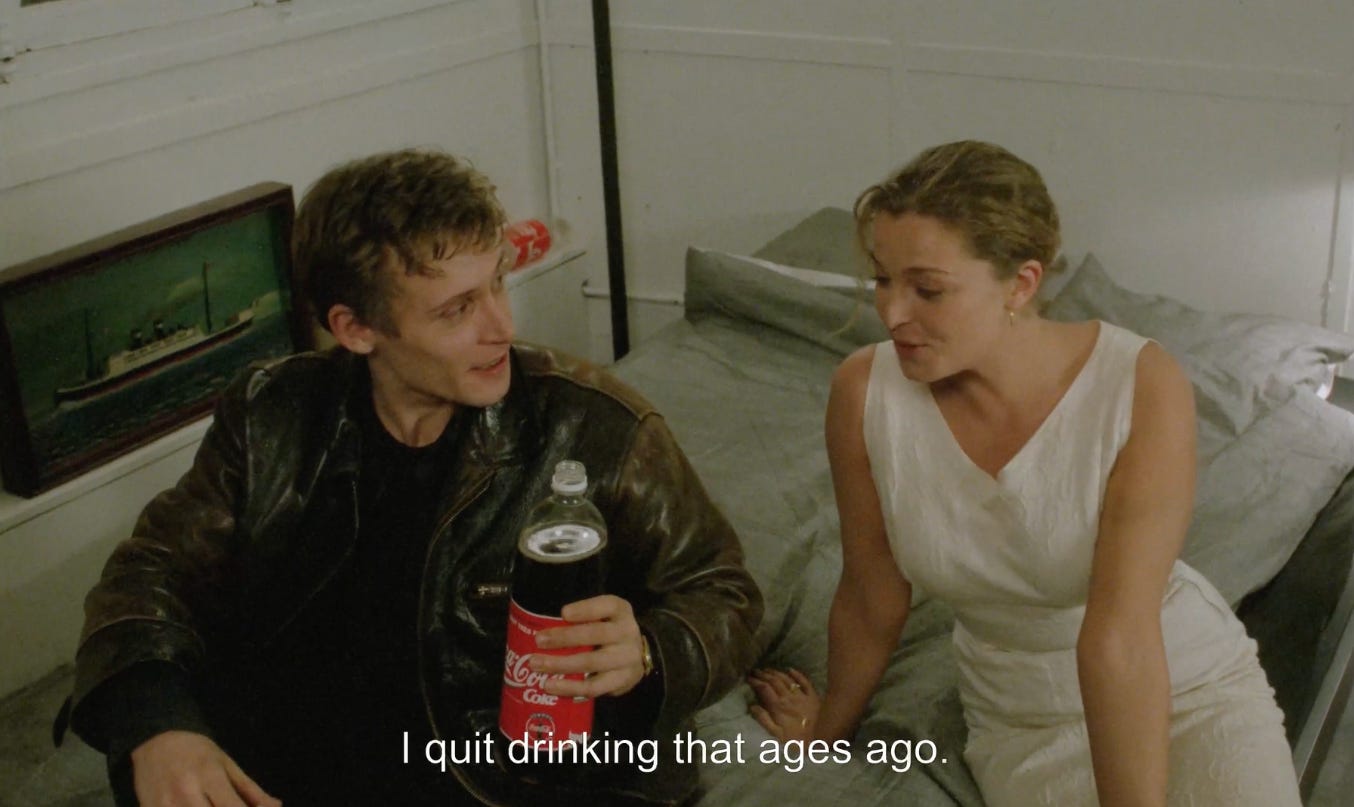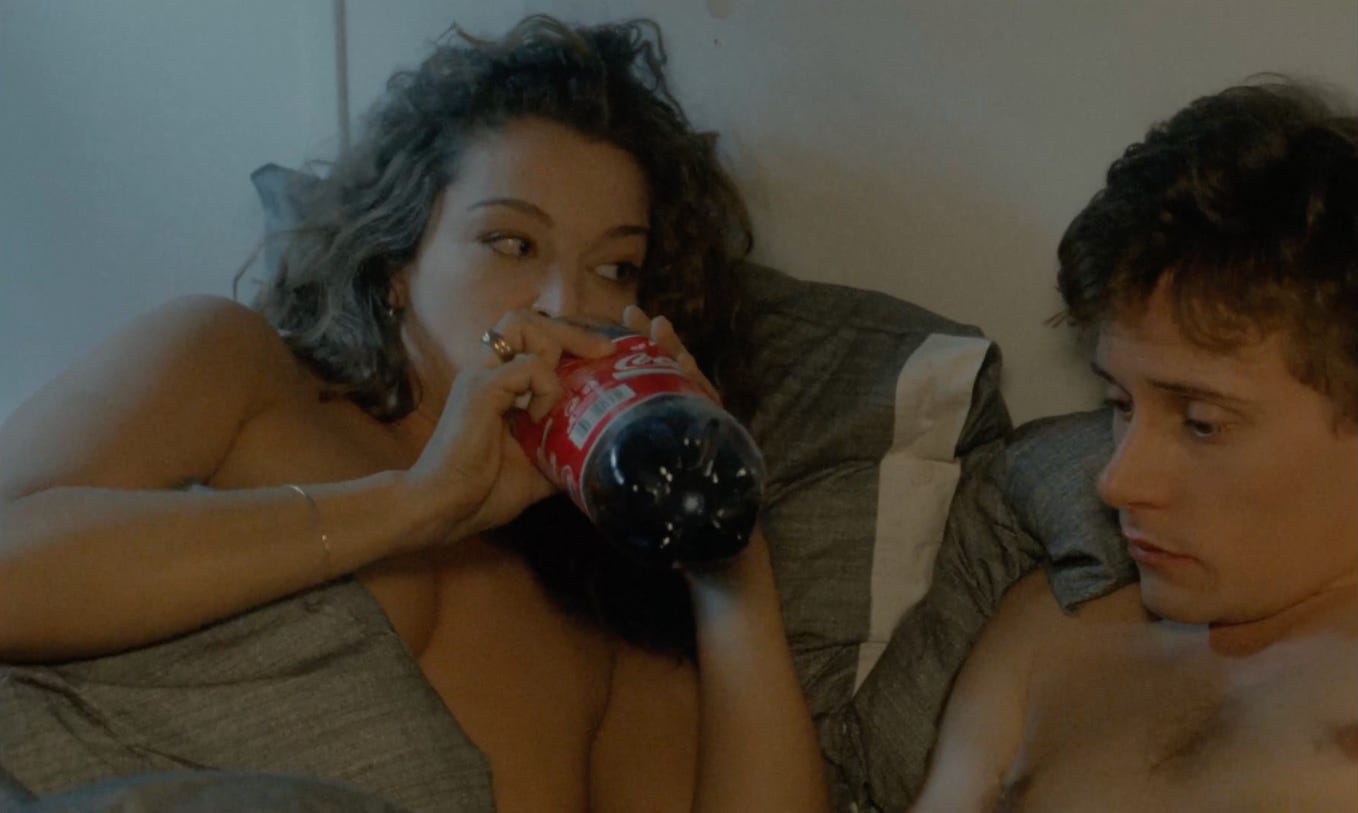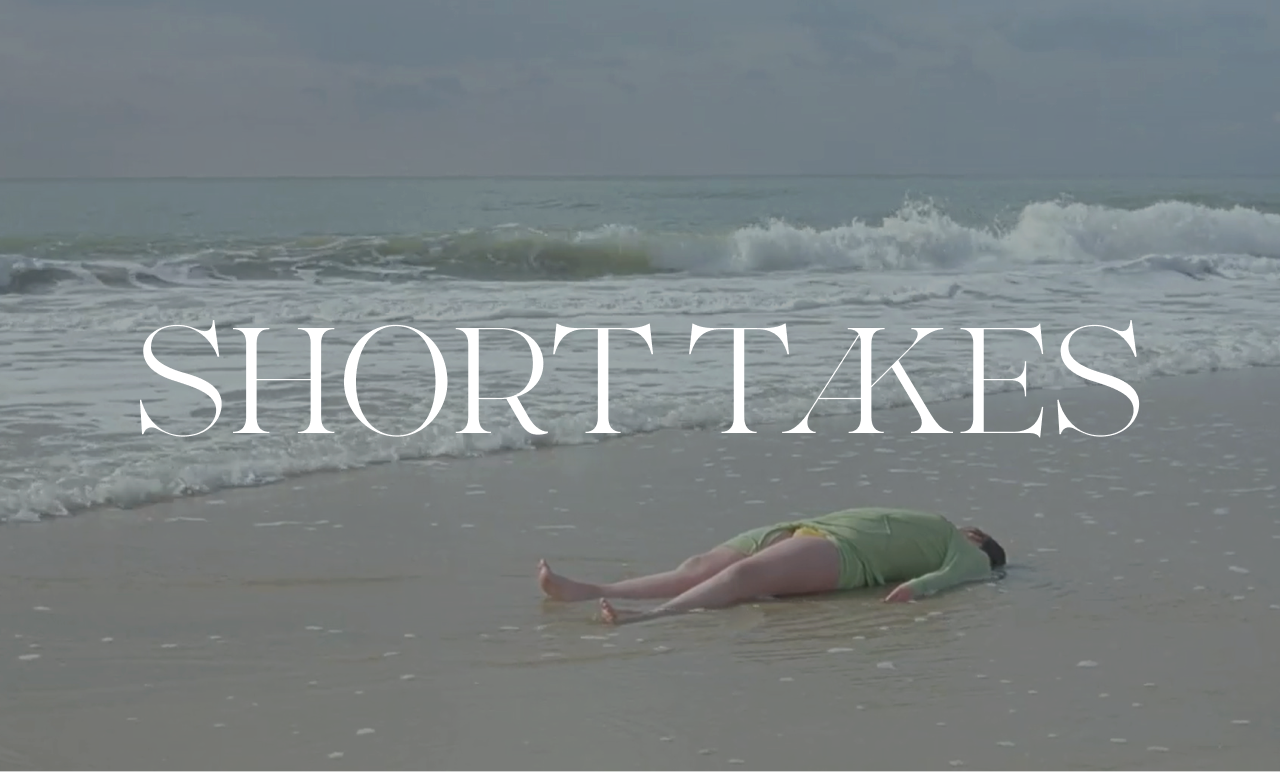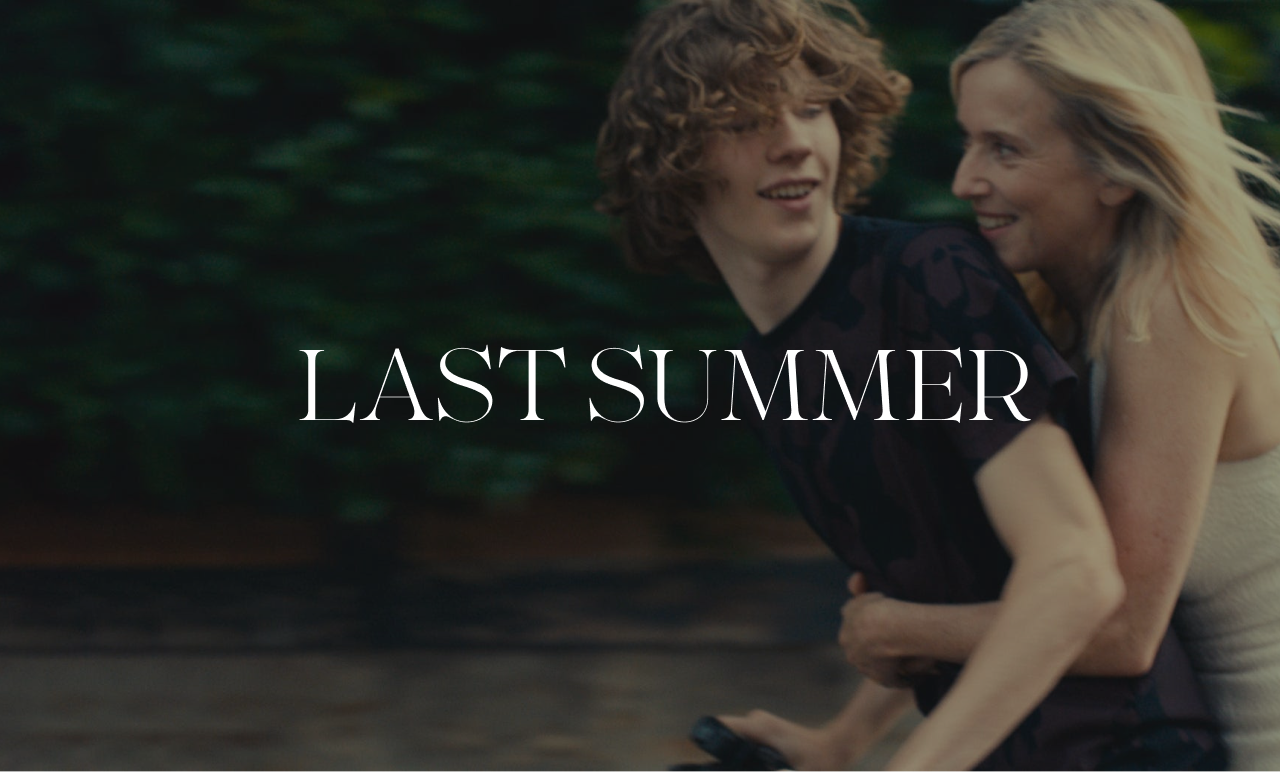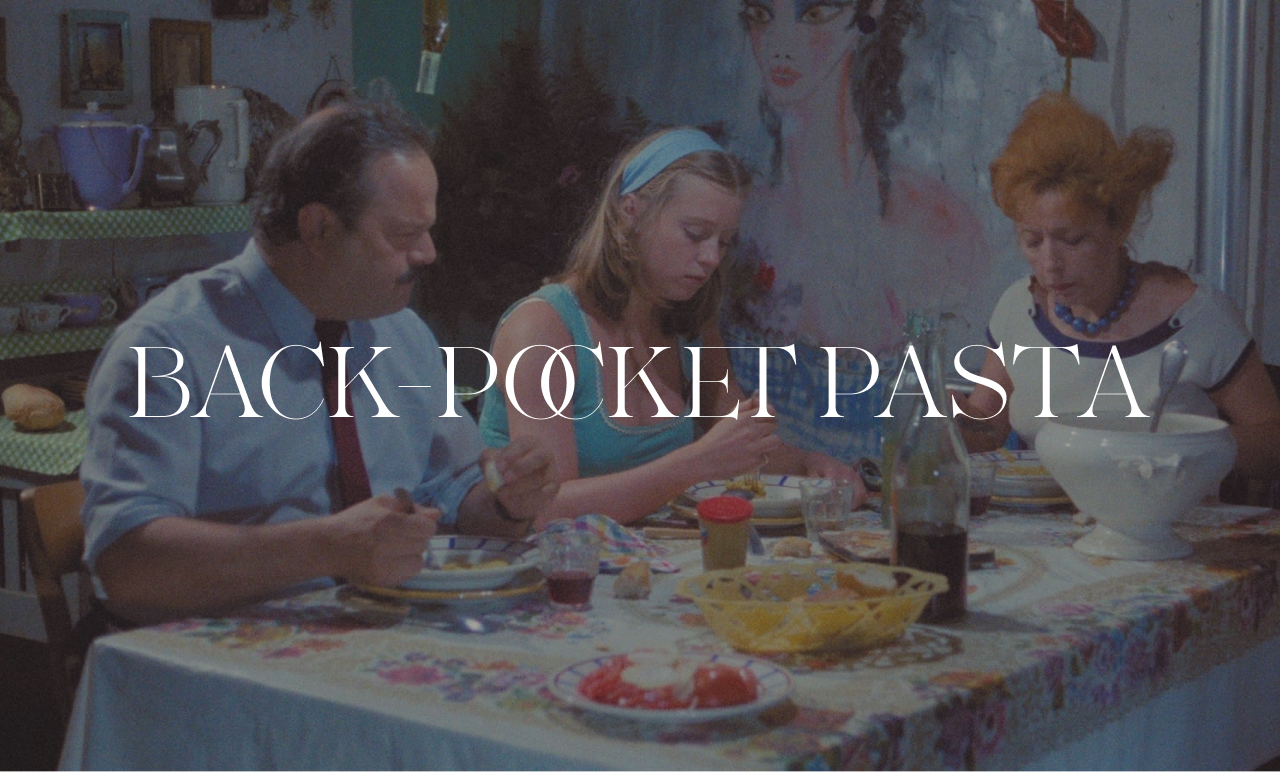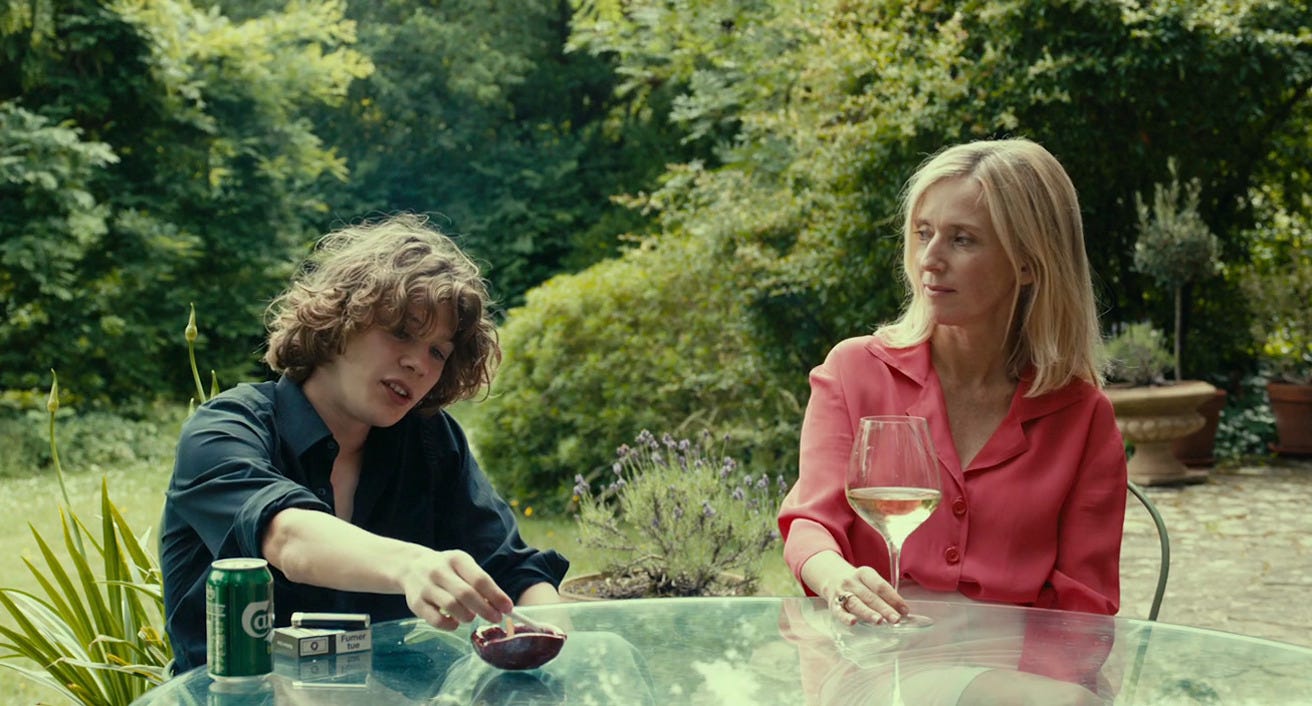These screenshots from Catherine Breillat’s Perfect Love (1992) cheekily epitomize the worldview of French auteur, whose work has been, she tells me, trying to get to the root of our desires—and why we do the sometimes absolutely ludicrous things we do.
I had a great conversation with her for Vogue, on the occasion of her new movie Last Summer. She was ebullient and game to talk—but as can happen, some of her reflections didn’t make it into the final published piece. They’re too good not to share, so I’ve included these exclusive insightful scraps at the end of this newsletter.
If you can’t see the new movie yet, you should definitely watch Fat Girl, her most iconic and well-known one as a primer, though Breillat had some other suggestions on where to start, too.
Last night I went to the new “oyster disco” STRANGE DELIGHT, which was unexpectedly hit or miss. More details on that soon.
This weekend I beg you to watch young Al Pacino nervously waffle over where to wear his handkerchief in the imperfect CRUISING, part of Nitehawk’s Be Gay, Do Crime series.
You could also try to see one of Charlie XCX’s curated selection of party films at The Roxy, including TO DIE FOR, PARTY GIRL, and PROJECT X.
You’ll likely catch me watching artist Robert Indiana eating mushrooms in Andy Warhol’s EAT or Eduardo Williams’ THE HUMAN SURGE 3, which I missed during the fall festivals.
For the Fourth, you can’t do better than Altman’s NASHVILLE. But my independence day tradition is DePalma’s BLOW OUT. It actually unfolds during the fictional holiday Liberty Day in Philly, but it’s awash in red white and blue, and conspiracy. What’s more American than that…
For
I compiled a list of outdoor movies playing around town this summer.
TO WATCH
Over the last three decades, Catherine Breillat has clinically charted female sexuality and its intersections with power and intimacy. Last Summer (2023), a formidable return after Abuse of Weakness (2013) a decade ago, is marked at times by an uncanny tenderness and the golden nostalgia suggested by its title. Elegantly transcending its salacious premise—a middle-aged woman shtupping her husband’s 17-year-old son—the film offers a slippery study of desire and transgression, the line between which is both a permeable boundary and a treacherous descent.
A competent and successful attorney, Anne (Léa Drucker) leads a fairly comfortable, safe life with her husband, Pierre, and their utterly adorable adopted twin daughters. When Theo (Sam Kirchner), Pierre’s son from a previous marriage, arrives after being kicked out of school, she happily accommodates him in their suburban summer home, unfazed by the slender, floppy-haired thing who comes off as a hostile brat. It is only gradually, with the film’s patient unfurling, that Theo becomes a keenly inquisitive companion and eventually covert lover. During the passionate interludes, the camera glues itself to gazes and facial expressions rather than bodies, scrutinizing the underpinnings of desires rather than physical manifestations of it.
Last Summer hews quite closely to Queen of Hearts (2019), the Danish film on which it’s based, until it doesn't. Breillat preserves the dialogue and setup, but erodes and obscures the foundations of Anne’s psychology. The predatory undertones of the original, more palpably an erotic thriller, were abundantly clear, and by muting them Breillat also curbs moral impositions—her own and the audience’s. Last Summer ultimately unnerves and agitates the source material’s inherent provocations. Maintaining a facade of unwavering composure, Drucker renders Anne apparently vulnerable but her true feelings indecipherable. We’re left to parse her improper inclinations, and the undeniable manipulations that arise once the secret’s out, on our own. That Anne primarily advocates for victims of abuse at work is not lost on us. What is clear though are the self-deceptions and preservationist tactics the upper-middle classes will employ to save face and uphold domestic order. Steeped with trappings of bourgeois life, in another iteration Last Summer could easily have been fodder for Chabrol.
This review was originally published on Screen Slate.
TO EAT
The most chilling sequence occurs when Anne's husband having discovered his wife’s affair, returns home unexpectedly, his face a snarling mask. She hastily prepares dinner for him and their daughters, forced to sit through the meal while anticipating his reaction.
Here is where I wish i had a screenshot of when Anne says something to the effect of Oh this, I just whipped this up! The dinner is a facade, a farce of domestic tranquility preceding the impending argumentative storm. Both we and Anne wonder how the tense situation will unfold, uncertain of what to expect—and the scene does not play out as you might think.
Some lazy spaghetti recipes that you too can easily make and eat when you’ve been caught in a lie.
Ever so slightly more effort, Ina Garten’s iconic uncooked tomato pasta
Aglio e oglio saved my life and wallet during college and needs no recipe but if you need instructions here you are, c/o none other than Roy Choi
A necessary upgrade for your hot buttered noodles, particularly for those you won’t dare order off a kids’ menu
OUTTAKES
Talking some more with Catherine Breillat
Keep reading with a 7-day free trial
Subscribe to MOVIEPUDDING to keep reading this post and get 7 days of free access to the full post archives.




